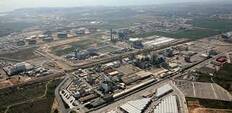- The BBTR project in Tarragona involves an investment exceeding €400 million.
- The project is expected to create around 200 direct jobs.
- Production at the CAM facility is scheduled to commence in 2025.
- The project focuses on renewable energy and energy-efficient processes.

Project Overview
The Battery Materials and Technology Recycling (BBTR) project in Tarragona, Spain, is undergoing strategic adjustments due to recent developments in the electric vehicle (EV) market. The project aims to support the growing EV market in Europe by aligning its plans with current market realities.
Economic Impact and Timeline
The BBTR project represents an investment exceeding €400 million and is expected to create around 200 direct jobs, along with additional indirect employment opportunities in the Tarragona region. The timeline for the commencement of production at the CAM production facility remains set for 2025.
Environmental Benefits
The project emphasizes the use of renewable energy sources and energy-efficient processes to minimize greenhouse gas emissions. Advanced technologies will be integrated to reduce the environmental footprint of battery production.
Future Outlook
Despite market uncertainties, the project remains a significant part of the strategy to support the European battery value chain. The flexible approach allows for rapid adaptation to market conditions while maintaining a commitment to sustainable mobility solutions. The BBTR project continues to play a crucial role in the region's transition to electric mobility, albeit with a more measured approach aligned with market realities.

